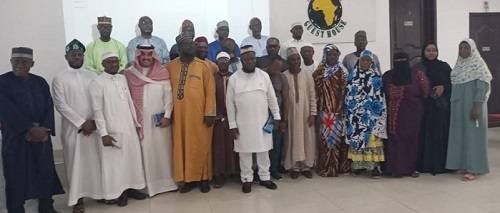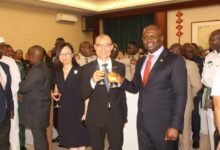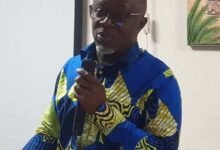Muslim Network sensitises pilgrims to Hajj rites

The Muslim Network, an Islamic-based non-governmental organisation, on Saturday organised a seminar for prospective Muslim pilgrims to sensitise them on how to perform the Hajj rituals, and what is required of them in the Holy Cities of Makkah and Madinah in the Kingdom of Saudi Arabia.
The prospective pilgrims, some of whom are undertaking the Hajj under the patronage of the custodian of two Holy Mosques, King Salman Bin Abdulaziz Al Saud as guests of the King, to seek the pleasure and blessings of Allah while experiencing the warm of Saudi hospitality.
Every year, the King of Saudi Arabia extend courtesies to number of Muslims professionals across the globe to undertake the Hajj at the cost borne by the Saudi government, and 20 Ghanaian Muslims professionals will embark on the religious journey on June 8th for this year’s Hajj.
Muslims across the globe, including Ghanaian pilgrims have started arriving in Makkah in the Kingdom of Saudi Arabia to perform the Hajj with the climax, the ‘Day of Arafat’, expected to be observed on the 9th Day of Dhul Hijjah(June 15) on the Islamic Hijri calendar.
Speaking at the seminar, Mr Mohammed Alegi, a representative of the Saudi Arabia Ambassador to Ghana, pledged the support of the Saudi government to extend the programme to cover more Muslims across the country.
The Founder of the Muslim Network and Islamic Scholar, Sheikh Yahya Tuntunba, ran them through the rituals including the circumambulation of the Ka’aba in the Grand Mosque (Masjid Haram), Safar and Marwa, supplications at Mount Arafat to climax the Hajj rites, sacrifice of animal and the symbolic pelting of the devil at Jamaraat, Mina.
“Sincerity is a condition for the acceptance of one’s Hajj,” Sheikh Tuntunba, a Muslim Scholar and an International Relations Expert with the Saudi Arabia Embassy in Accra, told the pilgrims.
Sheikh Tuntunba said performing the ritual in Makkah involved vigorous acts of supplications that refines one’s soul and that a pilgrim gets thousands of rewards from Allah for walking and supplicating around the Ka’aba in the Masjid Haram.
Dr Abdul-Rahaman Alhassan of the University of Ghana Hospital and a member of the network, said Hajj rituals were very stressful, and also urged the pilgrims to be physically fit before they undertake the Hajj, advising them to take the prescribed vaccinations, eat balanced-diet and nutritious food in order to boost their immune system.
Moreover, Dr Alhassan cautioned them to be wary of the prevalence of the Middle East Respiratory Syndrome in Saudi Arabia and the heat, advising them to use nose masks, avoid handshake, and drink lot of water to avoid contracting the COVID-like infection.
Alhaji M. Ibrahim, the Chief Executive Officer Africana Guest House, who offered his facility for the seminar urged the Muslim network to expand its tentacles and do more programmes for the benefit of the Muslim communities.
Dr Abass Shamsudeen Ibrahim, a Muslim Scholar, urged the pilgrims to be steadfast in the faith by observing the rituals in all sincerity to attain the blessings and mercies of Allah.
BY ALHAJISALIFU ABDUL-RAHAMAN







